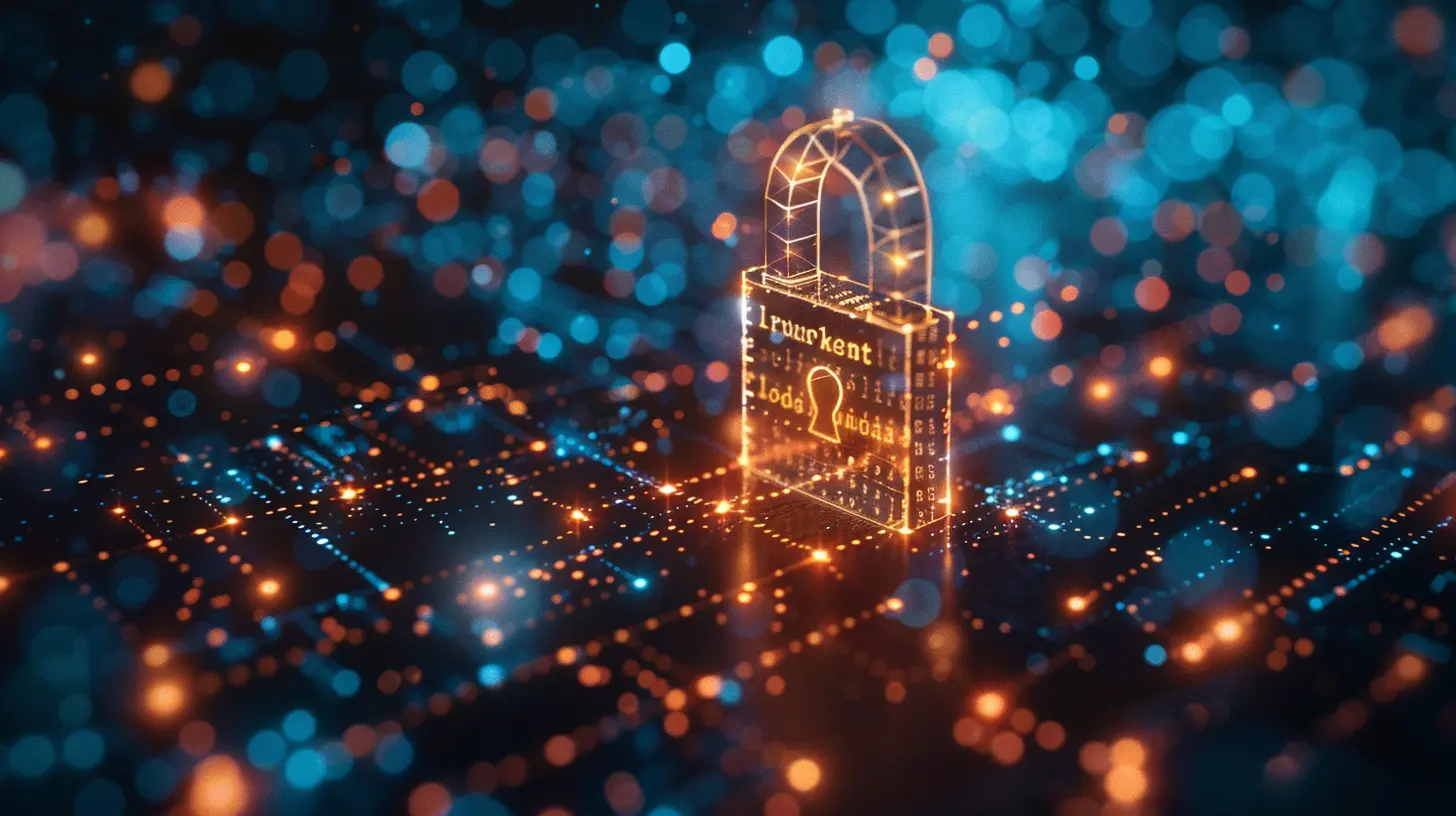How Quantum Computing Will Transform Data Encryption
8 October 2025
In this digital jungle where we trade secrets over Wi-Fi and store our lives in clouds, data encryption is the silent guardian that keeps everything from photos to passwords safe from prying eyes. But here's the twist—this guardian might soon be rendered powerless. The culprit? Quantum computing.
Yep, quantum computers are coming, and they don't play by our current digital rules. These machines promise to be so insanely powerful that they could crack today's best encryption like a hot knife through butter. Sounds dramatic? It is. But it's also a wake-up call.
Let’s dive into how quantum computing is set to completely transform data encryption as we know it—and what it means for your digital life.
What the Heck Is Quantum Computing, Anyway?
Alright, before we get into the deep stuff, let's untangle the idea of quantum computing. You've probably heard the buzz, but what is it?Traditional computers (like the one you're probably using right now) work using bits. These bits are either a 0 or a 1—like flipping a light switch on or off. But quantum computers use something called qubits. Here's where things get sci-fi.
A qubit can be a 0, a 1, or both at the same time. Yeah, it sounds like it's breaking the laws of reality, but it’s really just tapping into the bizarre world of quantum physics. This phenomenon is called superposition.
Now, toss in entanglement—a crazy property where qubits get linked together and the state of one instantly affects the other—and you’ve got a system that can process massive amounts of data in parallel.
In short, quantum computers don’t just run faster than regular ones—they run differently, and that gives them almost magical powers.
Why Current Encryption Works (For Now)
To understand what quantum computing might break, you gotta know what it's breaking.Today’s encryption methods mostly fall into two buckets:
1. Symmetric Encryption (like AES): This is where the same key is used to encrypt and decrypt the data. It’s like having one key that locks and unlocks your diary.
2. Asymmetric Encryption (like RSA, ECC): This uses two keys—a public one to encrypt and a private one to decrypt. It’s like someone having the key to lock a box and only you can unlock it with the private key.
Now, these systems are strong not because they're uncrackable, but because breaking them would take traditional computers thousands, maybe millions, of years.
Their strength lies in math problems that are hard to solve—things like factoring giant numbers (RSA) or solving discrete logarithms (ECC). But quantum computers? They laugh in the face of our "hard" math.
Enter Shor’s Algorithm: The Cryptographer’s Worst Nightmare
Back in 1994, a guy named Peter Shor developed an algorithm specifically for quantum computers that could factor large numbers really fast. We're talking exponentially faster than classical computers.What does that mean in plain English?
Well, it means that RSA encryption—the same technology protecting your credit card info, online identity, and government secrets—could be broken wide open by a sufficiently powerful quantum computer.
Boom. Just like that, decades of digital security would be toast.
Post-Quantum Cryptography: The Digital Lifeboat
Now, don’t panic just yet. The good news is that scientists aren’t just sitting around waiting for data chaos to unfold. They’re already developing post-quantum cryptography (PQC)—encryption techniques designed to resist attacks from quantum computers.These new cryptographic systems are based on math problems that even quantum computers find difficult. Think lattice-based cryptography, hash-based signatures, and other tongue-twisting methods with some seriously complex math under the hood.
In fact, the National Institute of Standards and Technology (NIST) has been leading a global competition to identify quantum-proof algorithms. We're already narrowing down options to replace vulnerable systems before the quantum tide comes in.
A New Arms Race: Quantum vs. Quantum
Here's something wild—quantum computing isn’t just the villain in this story. It might also be the hero.While quantum computers threaten to break current encryption, they also have the potential to build unhackable encryption using something called Quantum Key Distribution (QKD).
Sounds fancy, right? It’s basically a way to use the quirks of quantum mechanics to share encryption keys so securely that if anyone tries to snoop, you’ll actually know about it. Why? Because observing a quantum state changes it. It’s like trying to sneak a peek at a message and immediately setting off an alarm.
With QKD, you don't just secure your data—you guarantee its security based on physics, not just math.
What Does This Mean for Everyday Users?
Okay, so unless you’re a cybersecurity nerd or someone who encrypts top-secret files for breakfast, you might wonder, "Why should I care?"But here’s the thing: every app, website, and service you use relies on encryption. Online banking, cloud storage, messaging apps—they all assume that certain problems are too hard for computers to solve. Quantum computing turns that assumption upside down.
The everyday impact could be huge:
- Your encrypted messages? Vulnerable.
- Your Wi-Fi password? Breakable.
- Your medical records in the cloud? Exposed.
The digital world as we know it would need a full-blown security makeover.
When Will Quantum Computers Become a Real Threat?
This is the million-dollar question. Right now, quantum computers are still in their infancy. Google, IBM, and a handful of other companies are racing to build scalable quantum machines, but we’re not quite at the “RSA-breaking” stage yet.Most experts estimate a 10 to 20-year window before quantum computers are powerful enough to break RSA-level encryption. But—and this is important—bad actors could steal encrypted data today and crack it later when they have access to quantum tech.
It’s called harvest now, decrypt later, and it’s a serious threat. That means we can’t wait until quantum computers are mainstream—we need to future-proof now.
How Businesses Should Prepare
If you’re running a company (especially in finance, healthcare, or defense), here’s your heads-up: start preparing for the quantum future now.Here’s what businesses should be doing:
1. Take inventory of current cryptographic systems.
2. Follow NIST’s post-quantum cryptography standards and be ready to switch once the final list is released.
3. Start experimenting with hybrid systems—those that use both classical and post-quantum algorithms.
4. Invest in quantum-safe infrastructure as part of your long-term cybersecurity strategy.
Not doing so could mean storing up a data disaster that's waiting to happen.
National Security and Quantum Warfare
We’d be remiss if we didn’t mention the geopolitical angle. Quantum computing isn’t just a tech race; it’s a new kind of arms race.Whichever country first achieves quantum supremacy—the ability to solve problems that traditional computers can’t—will have a major cyber advantage.
That’s why countries like the U.S., China, and Russia are funneling vast resources into quantum research. It’s not just about faster computing anymore—it’s about control, surveillance, and power.
Quantum computers could:
- Break into rival nations' communication networks
- Decrypt diplomatic messages or military commands
- Neutralize encryption behind national infrastructure
It’s serious business, and it’s already happening behind the scenes.
Quantum-Resistant Encryption Techniques to Watch
Alright, if you're still with me (and kudos if you are!), you might be curious about which encryption methods are set to be quantum-proof. Here are a few front-runners:- Lattice-based Cryptography: Hard math problems in multidimensional space. Sounds like a sci-fi maze, but it’s incredibly promising.
- Hash-Based Signatures: Built on cryptographic hash functions, which remain tough nuts to crack, even for quantum machines.
- Multivariate Cryptography: Based on solving equations with multiple variables—hard even for quantum computers.
- Code-Based Cryptography: Uses error-correcting codes that resist both classical and quantum attacks.
These aren’t just theoretical—they’re actively being tested and will likely shape the secure systems of the next decade.
Final Thoughts: Change Is Coming, Ready or Not
Quantum computing is like the plot twist in a cyber-thriller that no one asked for—but it's here. While it promises breakthroughs in medicine, materials science, and AI, it also threatens to tear down the very foundation of modern digital security.So, should you be worried? A little. But should you be prepared? Absolutely.
Whether you’re a tech enthusiast, a business owner, or just someone who likes their privacy, now’s the time to pay attention. The encryption landscape is about to shift in a big way, and staying ahead of the curve might just be the most important cybersecurity move you make.
all images in this post were generated using AI tools
Category:
Quantum ComputingAuthor:

Adeline Taylor
Discussion
rate this article
1 comments
Carly Evans
Exciting times ahead! Quantum computing could revolutionize data security, making our online lives much safer and smarter.
October 22, 2025 at 11:18 AM

Adeline Taylor
Absolutely! Quantum computing has the potential to redefine data encryption, enhancing security and making our digital interactions safer than ever.


